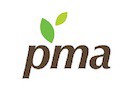The lack of pallets is adding stress to a supply chain that is already facing significant challenges which include a lack of available trucks and shipping containers, ongoing labor challenges, fluctuating fuel costs, pandemic-related challenges and a pending shortage of resin used to make reusable containers and pallets.
The current price of lumber, shortage of trucks and marine containers could affect the price of fresh produce and flowers, Ed Treacy with Produce Marketing Association warns. Due, in part, to the lumber shortage, there’s a shortage of pallets – a vital part of the production chain. Ed rings the bell on this topic and advises both the fresh produce as the floral industry to prepare for a longer period of pallet shortage.
“There is currently a shortage of all types of pallets available for rent or sale in the U.S. This is not unique to just the produce and floral industry”, Produce Marketing Association (PMA) Vice President Supply Chain and Sustainability Ed Treacy alerted its members earlier this month. “The shortage is across all types of pallets. “Not just rental company pallets, all pallets.”
A multitude of issues are impacting pallet availability including:
• Efforts of wholesalers, distributors and retailers to ensure sufficient inventory of non-perishables given previous pandemic-related impacts.
• The availability of lumber to repair and build new pallets.
• The escalating price of lumber when it is available.
• Non-perishable inventory dwell time increase.
• Lack of available trucks to relocate pallets.
He expects this situation to last for a longer period and advises shippers and receivers to work together. The supply chain must balance organizational goals relative to overall availability of goods with availability of food. If there is not a concerted effort across the supply chain to ensure pallet availability for shipment of produce, there is little doubt that it will be very difficult, if not impossible, for the grower/shipper community to meet buyer, and ultimately consumer, demand for produce. Simultaneously, growers and shippers are working hard to remain compliant with pallet requirement specifications where they can, but this is proving challenging. Temporary modifications or exceptions to pallet requirements, as long as they do not jeopardize safety, would prove advantageous until this pallet shortage is resolved.
“Receivers being flexible on their pallet policies such as allowing the transfer of produce and floral onto a receiver supplied acceptable pallets at point of receiving would help the industry in the long term, as it would lower the pressure on the availability of the pallets.”
 For more information:
For more information:
Ed Treacy
Produce Marketing Association
Tel: +1 (302) 781-5855
[email protected]
www.pma.com










